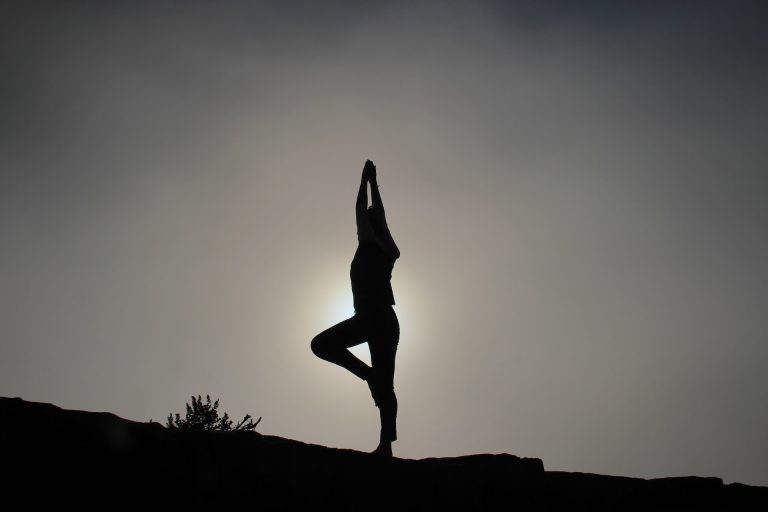Which is Better: Karate or Martial Arts?
When it comes to martial arts, there are a lot of different styles to choose from. Two of the most popular are karate and martial arts. However, which one is better? There are a lot of factors to consider, so let’s take a closer look at both karate and martial arts.
What is Karate?
Karate is a Japanese martial art that focuses on striking techniques, such as punches, kicks, and knee strikes. Karate is known for its powerful strikes, as well as its emphasis on self-defense and discipline. Karate also includes forms, or kata, which are sequences of movements that simulate self-defense situations.
What is Martial Arts?
Martial arts is a term that encompasses a wide variety of styles from around the world, including karate, taekwondo, judo, jiu-jitsu, and more. While each style has its own unique techniques and philosophies, they all focus on self-defense and personal development.
The Pros and Cons of Karate
One of the pros of karate is its focus on striking techniques, which can be very effective in self-defense situations. Karate can also help improve strength, flexibility, and overall fitness. Additionally, karate emphasizes discipline, respect, and self-control, which can be valuable life skills.
However, one potential drawback of karate is its emphasis on striking techniques. While powerful strikes can be effective, they also require a lot of physical strength and conditioning. Additionally, karate may not be as effective in close-range or grappling situations, which are common in real-world self-defense scenarios.
The Pros and Cons of Martial Arts
One of the pros of martial arts is its versatility. As mentioned earlier, martial arts encompasses a wide variety of styles, each with its own unique techniques and philosophies. This means that martial arts can be tailored to fit the individual needs and preferences of the practitioner.
Martial arts also emphasizes a holistic approach to personal development. In addition to self-defense techniques, martial arts focuses on mental and emotional growth, such as improving focus and self-awareness.
However, one potential drawback of martial arts is its emphasis on forms and katas. While these sequences of movements can be valuable training tools, they may not always translate well to real-world self-defense situations. Additionally, some martial arts styles may not include as much conditioning or strength training as karate.
Which One is Better?
So, which one is better? The answer is that it depends on the individual. Both karate and martial arts offer unique benefits and drawbacks, and each one can be valuable for different people depending on their needs.
For those who are looking for a more traditional approach to martial arts with a strong emphasis on discipline and self-control, karate may be the better choice. However, for those who want a more versatile approach with a focus on personal development, martial arts may be a better fit.
Ultimately, the best way to determine which one is right for you is to try them both out and see which one resonates with you more. Both karate and martial arts require a lot of hard work and dedication, but the rewards can be significant, both in terms of physical fitness and personal growth.
Which is Better Karate or Martial Arts: Most Frequently Asked Questions
Many people are confused when it comes to the difference between karate and martial arts. They often ask which one is better or more effective. But before we answer that question, we must first understand what karate and martial arts entail.
Karate is a form of martial arts that originated in Okinawa, Japan. It is mainly a striking art that uses punches, kicks, knees, and elbow strikes. It also includes various blocking techniques and basic grappling and joint locks.
On the other hand, martial arts comprise of several different fighting styles, similar to karate, but originating from different parts of the world. Some of the most well-known martial arts styles include Taekwondo, Kung Fu, Judo, and Brazilian Jiu-Jitsu, among others.
Now, let’s dive into the most frequently asked questions about „which is better: karate or martial arts.“
Question 1: Is Karate Easier to Learn Than Martial Arts?
The answer, in short, is no. Karate requires the same dedication, commitment, and discipline as any other form of martial arts. It takes years of practice, effort, and patience to master karate or any martial arts to perfection. Therefore, learning karate is not easier than any other form of martial arts.
Question 2: Which Is More Effective: Karate Or Martial Arts?
Both karate and martial arts are effective in their own right. It depends on the individual’s needs, goals, and preferences. Both have their strengths and weaknesses, and it is up to the individual to choose which one suits them the best. If you are interested in a more striking art, then karate might be the right fit for you. If you are interested in grappling and submission techniques, then martial arts such as Brazilian Jiu-Jitsu may be the way to go.
Question 3: Can Karate Be Used in Self-Defense?
Yes, karate can be used in self-defense. It is a martial art that focuses on striking techniques, blocks, and kicks, which can be useful in defending against an attacker. However, it’s important to remember that martial arts, including karate, should only be used in self-defense situations when there is no other option. Martial arts should never be used as a means of attacking others.
Question 4: What is the Best Age to Learn Karate or Martial Arts?
There is no particular age to start practicing martial arts. Some people start as young as three years old, whereas others begin in their 50s or 60s. Age is not a limiting factor; it’s never too late or too early to start learning martial arts. However, it’s important to consider the physical requirements and limitations of the individual when deciding on training for karate or other martial arts.
Question 5: What Are the Benefits of Practicing Karate and Martial Arts?
There are several benefits to practicing karate and other martial arts. Firstly, it improves physical fitness, agility, flexibility, coordination, and balance. Secondly, it helps to develop mental focus, discipline, self-confidence, and self-esteem. Thirdly, it teaches self-defense techniques that can be used in real-life situations. Lastly, it provides a sense of community and belonging among those who practice martial arts regularly.
In conclusion, both karate and martial arts have their strengths and weaknesses, and both can be equally effective. It all boils down to the individual’s preference and needs. Regardless of which one you choose, practicing martial arts provides several benefits that can enhance your physical and mental wellbeing.
How to Choose Between Karate and Martial Arts
When it comes to self-defense, there are a lot of different options to consider. Two popular types of martial arts are Karate and Martial Arts. It can be difficult to choose between the two, especially if you’re new to the world of martial arts. However, with a little bit of information, you’ll be able to make an informed decision. In this guide, we’ll take a look at some factors to consider when choosing between Karate and Martial Arts.
Step 1: Determine Your Goals
Before you choose between Karate and Martial Arts, it’s important to determine what you want to achieve. Some people practice martial arts for self-defense, while others do it for fitness reasons. If your goal is to learn self-defense techniques, you may want to consider a more combat-oriented martial art, like Krav Maga or Brazilian Jiu-Jitsu. If physical fitness is your main goal, Martial Arts may be a better choice since it focuses heavily on fitness training.
Step 2: Consider Your Learning Style
Different martial arts have different teaching styles. Karate, for example, is a more structured discipline with standard forms and patterns that students must learn. In contrast, there is generally more flexibility in how Martial Arts is taught. Consider which learning style you prefer before deciding which discipline to pursue.
Step 3: Evaluate Classes in Your Area
Now that you know what you want to achieve and how you prefer to learn, it’s time to evaluate classes in your area. Look for a qualified instructor who can teach the discipline you’re interested in. It’s a good idea to observe a class before you sign up. This way, you can get a feel for the atmosphere and the other students.
Step 4: Consider the Cost and Convenience
Before you make a final decision, consider the cost and convenience of the classes you’re interested in. Some martial arts schools charge more than others, and some may be closer to your home or workplace than others. Evaluate how much you’re willing to spend and how far you’re willing to travel to attend classes.
Step 5: Try it Out
The best way to know if Karate or Martial Arts is right for you is to try it out. Most schools offer a free trial class or introductory course. Take advantage of these opportunities to get practical experience with the discipline you’re considering.
Conclusion
Choosing between Karate and Martial Arts is a big decision, but with the right information, it’s a decision you can make confidently. Determine your goals, consider your learning style, evaluate classes in your area, factor in cost and convenience, and most importantly, try it out for yourself. With these steps in mind, you’ll be well on your way to finding the right martial art for you.
Inhaltsverzeichnis






